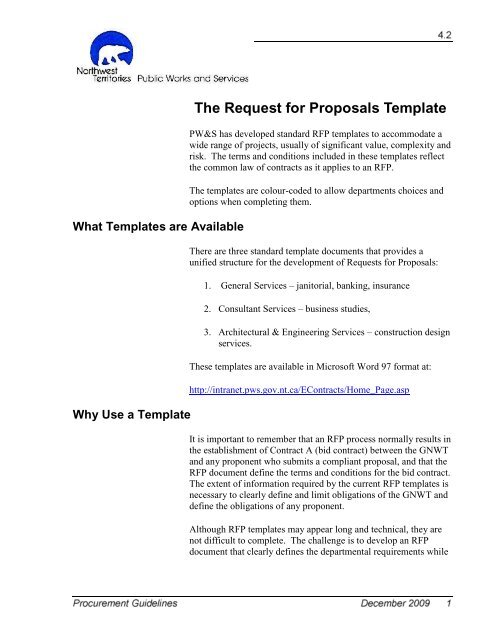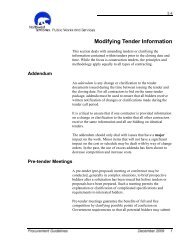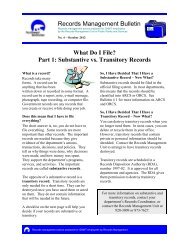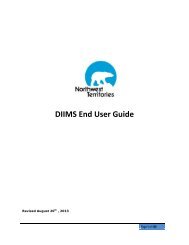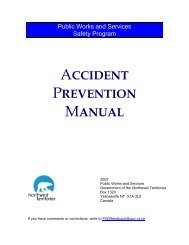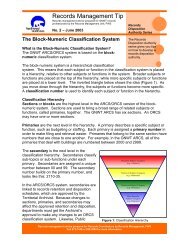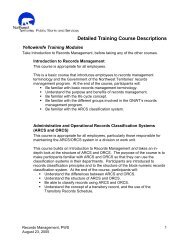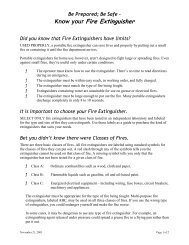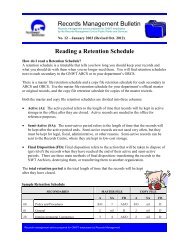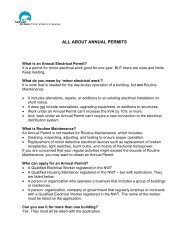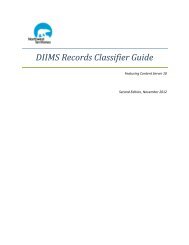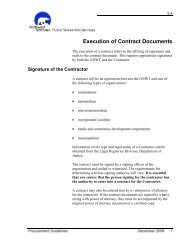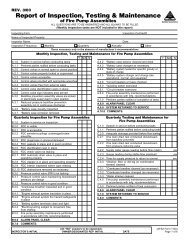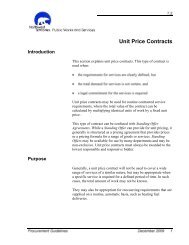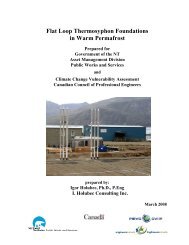The Request for Proposals Template
The Request for Proposals Template
The Request for Proposals Template
You also want an ePaper? Increase the reach of your titles
YUMPU automatically turns print PDFs into web optimized ePapers that Google loves.
What <strong>Template</strong>s are AvailableWhy Use a <strong>Template</strong><strong>The</strong> <strong>Request</strong> <strong>for</strong> <strong>Proposals</strong> <strong>Template</strong>PW&S has developed standard RFP templates to accommodate awide range of projects, usually of significant value, complexity andrisk. <strong>The</strong> terms and conditions included in these templates reflectthe common law of contracts as it applies to an RFP.<strong>The</strong> templates are colour-coded to allow departments choices andoptions when completing them.<strong>The</strong>re are three standard template documents that provides aunified structure <strong>for</strong> the development of <strong>Request</strong>s <strong>for</strong> <strong>Proposals</strong>:1. General Services – janitorial, banking, insurance2. Consultant Services – business studies,3. Architectural & Engineering Services – construction designservices.<strong>The</strong>se templates are available in Microsoft Word 97 <strong>for</strong>mat at:http://intranet.pws.gov.nt.ca/EContracts/Home_Page.aspIt is important to remember that an RFP process normally results inthe establishment of Contract A (bid contract) between the GNWTand any proponent who submits a compliant proposal, and that theRFP document define the terms and conditions <strong>for</strong> the bid contract.<strong>The</strong> extent of in<strong>for</strong>mation required by the current RFP templates isnecessary to clearly define and limit obligations of the GNWT anddefine the obligations of any proponent.Although RFP templates may appear long and technical, they arenot difficult to complete. <strong>The</strong> challenge is to develop an RFPdocument that clearly defines the departmental requirements while
What Can Go Wrongensuring that the ef<strong>for</strong>t to respond is not too costly in comparisonto the value of the contracting opportunity.If a proponent challenges the legality of an RFP process, thegovernment must rely on the terms and conditions built into theRFP template as part of the response the proponent. <strong>The</strong>re<strong>for</strong>e,changing the wording in these templates may remove some of theprotective language developed by Legal Division, and create risksand potential liability to government. If departments believe thatsomething in the templates is not applicable to their project, adviceshould be sought from Legal Division be<strong>for</strong>e changes are made.In addition, departments should avoid taking any actions or makingany decisions during an RFP process that could be construed asproviding an unfair advantage to any proponent, as legalproceedings could result.If the evaluation process is not followed, the departmentresponsible may find itself being challenged by unsuccessfulproponents.


